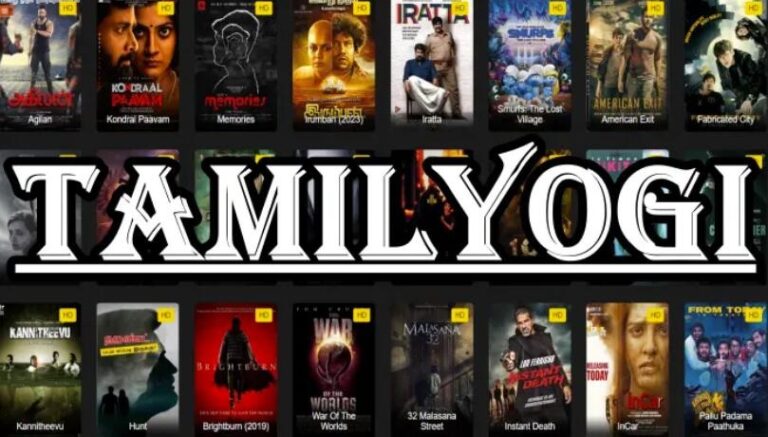
ujjwala yojana
Introduction to Ujjwala Yojana: Ujjwala Yojana
The Pradhan Mantri Ujjwala Yojana (PMUY) is a flagship program launched by the Government of India to provide clean cooking fuel to underprivileged families across the country. The scheme, initiated in 2016, aimed to replace traditional cooking methods that rely on biomass fuels such as wood, cow dung, and crop residues. These fuels not only emit harmful pollutants but also endanger the health of millions of women and children who are primarily responsible for cooking in rural households.
The primary objective of the Ujjwala Yojana is to improve the quality of life in rural areas by providing Liquefied Petroleum Gas (LPG) connections to Below Poverty Line (BPL) families. Over the years, PMUY has transformed lives, especially for women in rural India, who no longer need to rely on hazardous cooking practices. Let’s dive deeper into the background, objectives, achievements, and impact of the Ujjwala Yojana.
Table of Contents
Background and Need for Ujjwala Yojana
The Challenge of Traditional Cooking Fuels
In many parts of India, particularly in rural and economically disadvantaged regions, people rely heavily on biomass fuels for cooking. These traditional methods of cooking, such as using wood, coal, or cow dung, expose households to indoor air pollution that has severe health implications. Studies show that women and children in households using biomass fuels for cooking are at a higher risk of respiratory infections, chronic lung diseases, and even cancer.
Health and Environmental Impacts
According to the World Health Organization (WHO), indoor air pollution is one of the leading causes of premature deaths in India, attributing to about 500,000 deaths annually. The particulate matter released from these fuels is hazardous, leading to eye irritation, respiratory issues, and even cardiovascular diseases. Besides health concerns, the widespread use of biomass fuels also leads to deforestation, impacting the environment by increasing carbon emissions and reducing forest cover.
Empowering Women and Improving Quality of Life
Traditionally, women in rural households are responsible for gathering fuel for cooking. This often means traveling long distances and spending hours collecting firewood, which can be dangerous and time-consuming. Ujjwala Yojana has made a significant difference by providing LPG connections, which help reduce the daily burden on women, save time, and improve their overall quality of life.
Key Objectives of the Ujjwala Yojana
The Ujjwala Yojana was launched with the following major objectives:
- Providing Clean Fuel Access: To provide LPG connections to 80 million BPL households, replacing traditional cooking methods and ensuring that more families have access to clean and efficient cooking fuel.
- Promoting Women’s Empowerment: Targeted primarily at women, the scheme aims to empower them by reducing the health risks and hardships associated with traditional cooking.
- Reducing Indoor Pollution: By promoting the use of LPG, the scheme reduces indoor air pollution, which significantly benefits the health of women and children.
- Environmental Conservation: Reducing the dependency on wood and other biomass fuels contributes to environmental conservation by protecting forests and lowering carbon emissions.
- Economic Benefits: By reducing the time women spend collecting firewood and cooking, Ujjwala Yojana enables them to participate in income-generating activities and contribute to the household economy.
Implementation and Structure of Ujjwala Yojana
Eligibility Criteria
The Ujjwala Yojana specifically targets economically disadvantaged sections of society. The eligibility criteria for beneficiaries include:
- Belonging to a Below Poverty Line (BPL) household.
- No prior LPG connection in the household.
- Priority given to certain categories, such as Scheduled Castes (SC), Scheduled Tribes (ST), and marginalized communities.
Procedure for Application
Eligible households can apply for an LPG connection under the Ujjwala Yojana by filling out an application form and submitting proof of identity, address, and income. Beneficiaries are identified through the Socio-Economic Caste Census (SECC) data and supported by the Oil Marketing Companies (OMCs).
Financial Assistance
The scheme provides a subsidy of ₹1,600 per LPG connection to cover the cost of the connection, security deposit, regulator, and first refill. Additionally, beneficiaries are offered a loan for purchasing the stove and the first refill, making the transition to LPG even more affordable for economically disadvantaged households.
Expansion to Ujjwala 2.0
In August 2021, the Ujjwala Yojana entered its second phase, known as Ujjwala 2.0. This phase was introduced to cover the households that were left out in the first phase and focused on providing additional benefits, such as a free first refill and stove. Ujjwala 2.0 aims to connect an additional 10 million households, thereby expanding the scope and reach of the scheme.
Achievements of Ujjwala Yojana
Widespread Reach and Connection
As of recent statistics, the Ujjwala Yojana has reached over 80 million households, transforming the lives of rural families across the nation. This achievement not only demonstrates the success of the scheme but also highlights the commitment of the Indian government to improving living conditions in rural areas.
Improvement in Health and Safety
The Ujjwala Yojana has been instrumental in reducing the health risks associated with traditional cooking methods. By reducing exposure to smoke and pollutants, the scheme has helped lower the incidence of respiratory illnesses among rural households, particularly for women and children.
Environmental Impact
The widespread adoption of LPG as a cooking fuel has helped reduce deforestation and protect natural resources. With fewer households relying on wood and other biomass fuels, Ujjwala Yojana contributes to lowering carbon emissions, making a positive impact on the environment.
Socio-Economic Empowerment of Women
By reducing the time spent on cooking and collecting firewood, the scheme has freed up valuable time for women. This allows them to explore other economic opportunities, enhancing their financial independence and contributing to the household economy.
Challenges and Limitations of Ujjwala Yojana
Affordability of Refills
While Ujjwala Yojana provides an LPG connection to BPL households, the cost of refilling LPG cylinders can be a financial burden for low-income families. As a result, some households revert to traditional cooking methods once the initial free refill is used up.
Infrastructure and Accessibility Issues
In some remote areas, the infrastructure for regular LPG supply is limited. The lack of roads and transportation in certain regions makes it challenging for Oil Marketing Companies (OMCs) to deliver cylinders consistently. This results in sporadic availability, discouraging households from using LPG regularly.
Lack of Awareness and Training
Despite the availability of LPG, some households are hesitant to use it due to a lack of familiarity or concerns about safety. Providing education and training on safe LPG usage is crucial to overcoming this challenge.
The Way Forward: Strengthening and Expanding Ujjwala Yojana
Providing Subsidies for Refills
To ensure sustained adoption of LPG, it is essential to address the issue of refill affordability. Offering subsidies or flexible payment options for refills could help families afford LPG regularly, preventing them from reverting to biomass fuels.
Expanding Infrastructure in Remote Areas
Investing in infrastructure to improve LPG accessibility in remote and underserved areas is critical. Developing transportation and storage facilities in these areas would enable Oil Marketing Companies to deliver cylinders more reliably, increasing the convenience and appeal of using LPG.
Raising Awareness and Education
Educational campaigns that focus on the health, environmental, and economic benefits of LPG can encourage more households to switch to clean cooking fuel. Additionally, providing safety training will help overcome apprehension and ensure the safe use of LPG, especially in households that are new to it.
Conclusion: The Transformative Power of Ujjwala Yojana
The Pradhan Mantri Ujjwala Yojana has brought significant positive changes to the lives of millions of households across India, especially in rural and economically disadvantaged regions. By providing access to clean cooking fuel, the scheme has empowered women, improved health outcomes, and contributed to environmental sustainability. Although there are challenges, with strategic improvements and continued support, Ujjwala Yojana has the potential to become a cornerstone in India’s journey towards a healthier, greener, and more empowered society.
Ujjwala Yojana’s transformative impact underscores the power of inclusive policies that prioritize the well-being of the most vulnerable communities. With further efforts to address affordability, accessibility, and awareness challenges, Ujjwala Yojana will continue to play a pivotal role in uplifting lives and achieving sustainable development goals for India.



